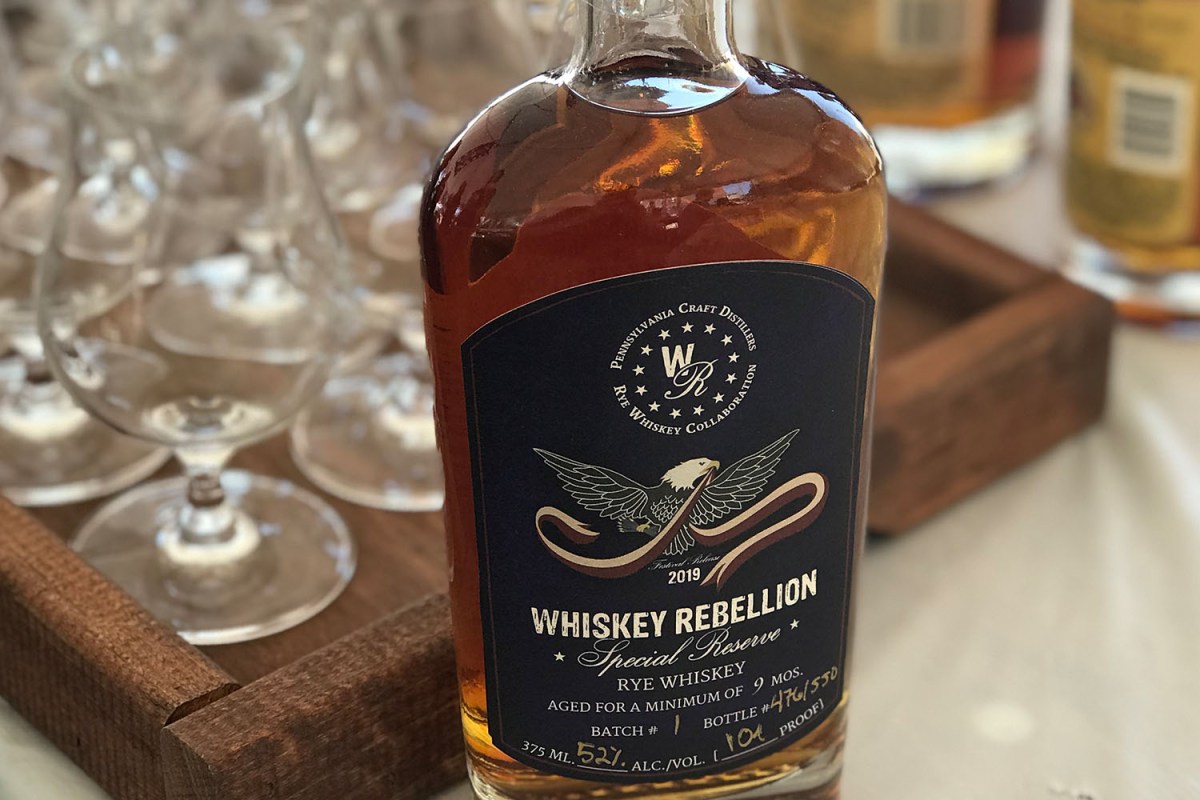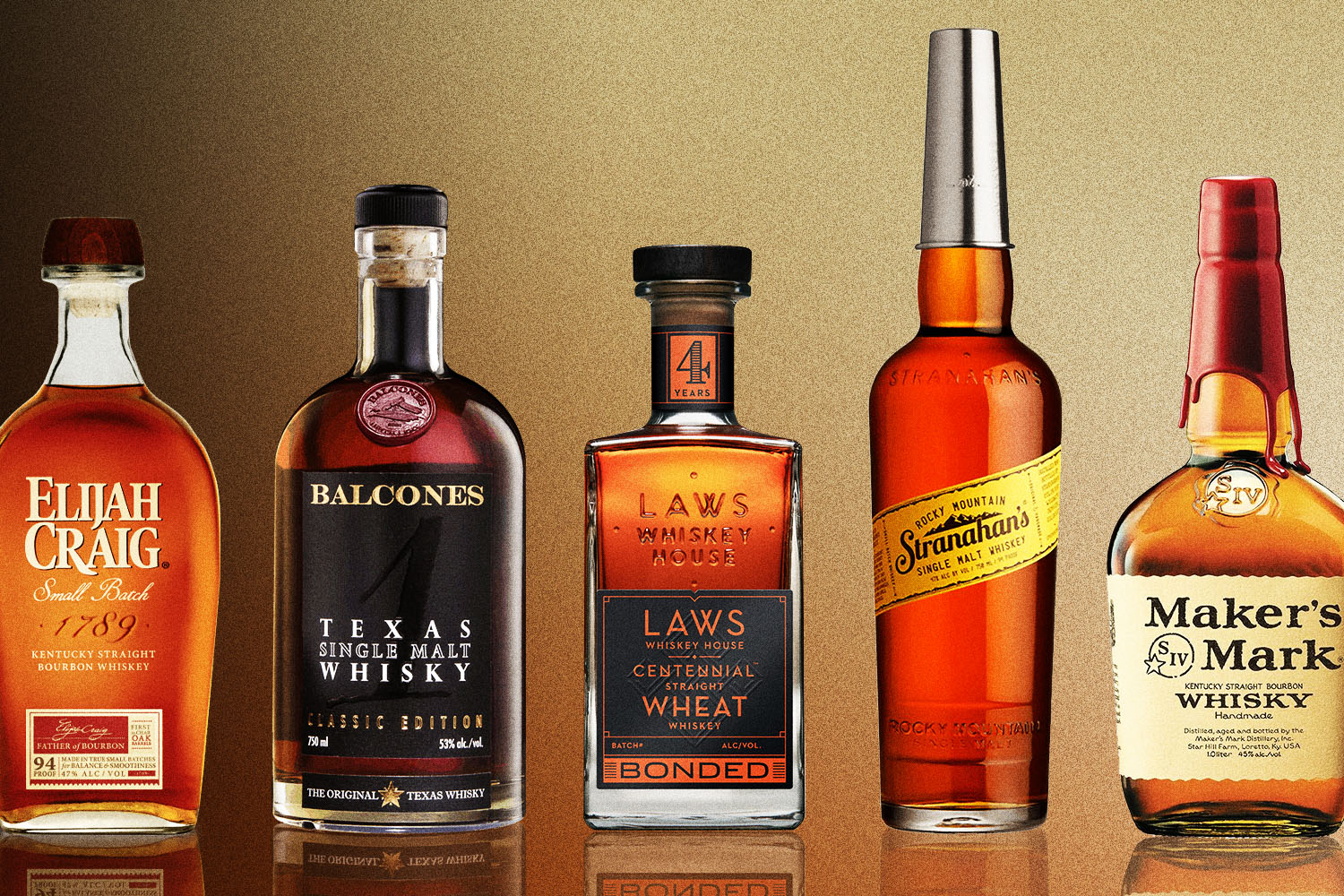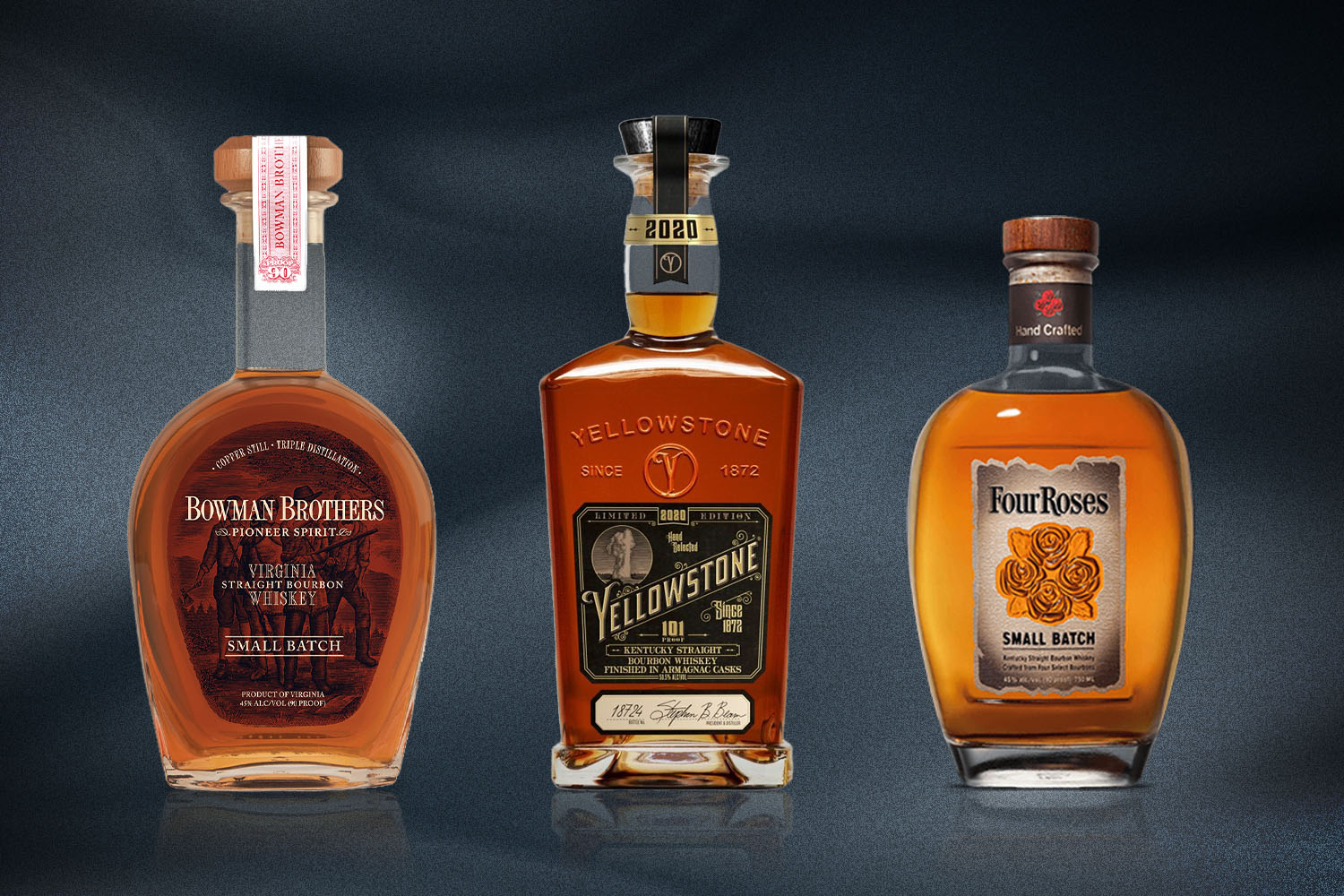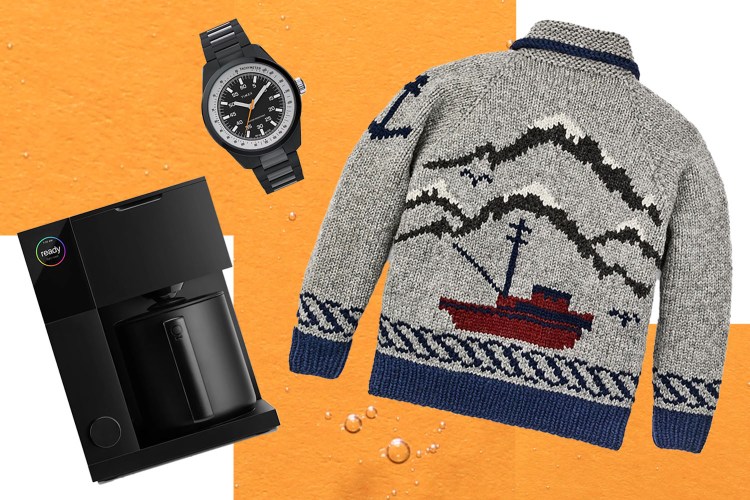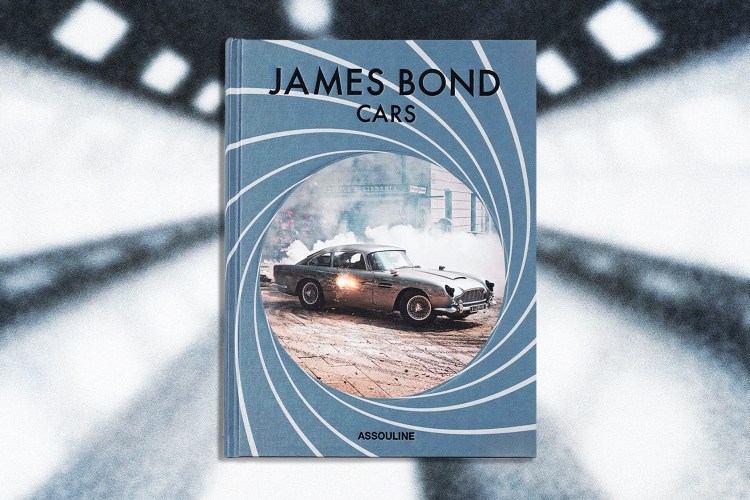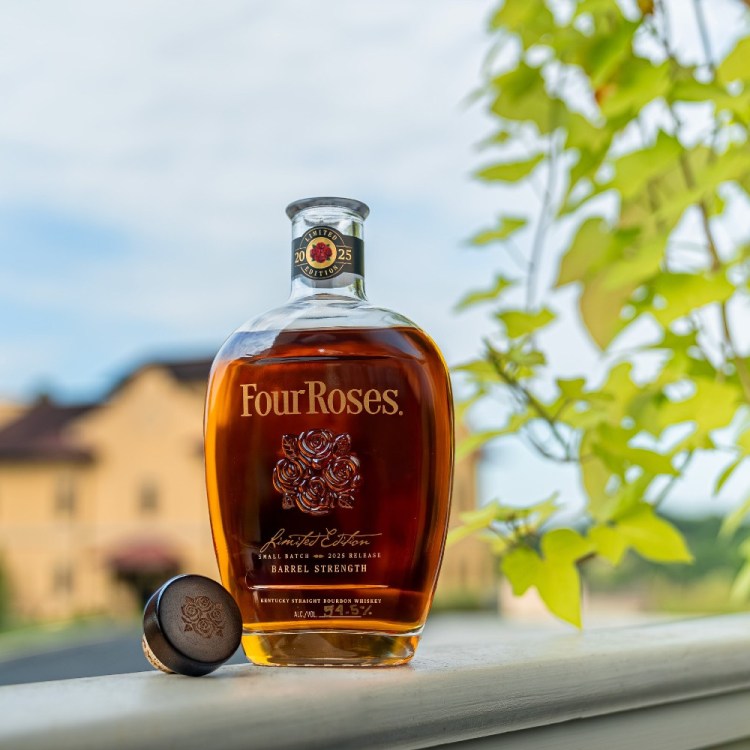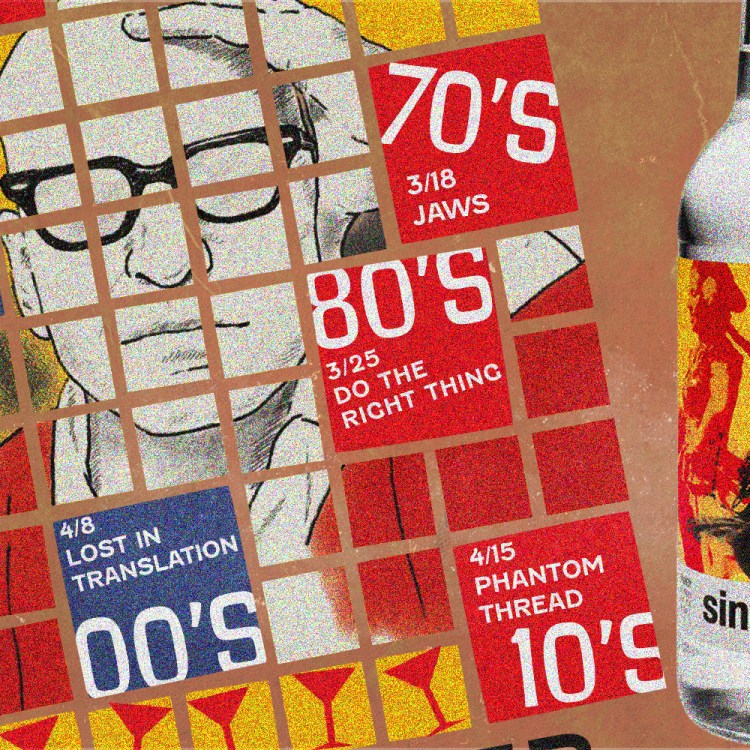“This is a tour of America.”
That’s how Pittsburgh mayor William Peduto describes the just-anointed Whiskey Rebellion Trail, a four-city trek to distilleries and cultural institutions in the Mid-Atlantic that has loftier goals than just being another bourbon/whiskey trail.
Sure, following the Trail will provide you with a guided path to some of the country’s best craft distilleries. But it also charts an overlooked but essential part of U.S. history.
Situated within Pittsburgh, Philly, D.C. and Baltimore, as well as parts of the beautiful central Pennsylvania countryside, the Whiskey Rebellion Trail officially launched on July 12th. We traveled to the Heinz History Center in Pittsburgh for the launch, and then spent four days on the road taking in the boozy, cultural and historical locations along the trail, which loosely follows a late 18th-century tax rebellion … one that eventually changed the fabric of our country and involved, among others, George Washington and Alexander Hamilton.
(The rebellion was briefly mentioned, albeit later cut, in a Hamilton musical number.)
The most important detail for everyone to know before going on the Trail is that it’s purposely designed to appeal to a wide range of interests. “It’s about more than drinking,” as Whiskey Rebellion Trail chair (and Wigle Whiskey co-owner) Meredith Meyer Grelli noted at the Trail’s launch event.
Into American history? You’re gonna learn a lot about lesser-known players who shaped the early part of our heritage, plus have access to cultural institutions such as George Washington’s Mount Vernon, West Overton Village (essentially the birthplace of American whiskey) and the Museum of the American Revolution.
Into spirits? Not only will you discover dozens of smaller, independent whiskey distilleries in the actual birthplace of American Whiskey (which, do note, primarily centers around rye), you’ll find excellent local producers of gin, vodka, rum, aperitivos and more, many of which you would never be to sample outside the mid-Atlantic region.
A very brief history lesson of the Whiskey Rebellion
On the trail, each distillery and institution should be able to give you a quick — or, depending on location, intensely thorough — overview of the Whiskey Rebellion. So no spoilers, but a quick overview:
Following the Revolutionary War, Secretary of the Treasury Alexander Hamiltion proposed a whiskey tax to pay off interest on the federal debt. The tax, however, would seriously harm residents along the western frontier and around Pittsburgh, who used their rye spirits as barter and had little access to cash.
The protests and tussles intensified over the next couple of years — tax collectors coming to western Pennsylvania were summarily punched, tar and feathered — along with a misinformation campaign that alarmed the federal government (at the time located in Philadelphia). President George Washington thought the revolt numbered thousands of angry residents, not hundreds; his response, goaded on by Hamilton, was to send 13,000 troops into Pittsburgh to quash the rebellion and arrest the rebels.
“It was our Boston Tea Party,” as noted by Carrie Lepore, Deputy Secretary of Marketing, Tourism and Film at Pennsylvania Dept. of Community & Economic Development, during the Trail’s official launch on July 12th at Pittsburgh’s Heinz History Center. Eventually, Washington pardoned two protestors accused of treason, the rebellion died down and Washington, in retirement and perhaps ironically, became a damn fine whiskey producer in his own right.
(By the way, imagine today if a sitting president rounded up thousands of militia members to fight back against American citizens over a protest.)
While spirits eventually did get regulated and taxed — quite a bit — you can credit the Rebellion for the creation of circuit courts, presidential pardons and for popularizing rye-based American whiskey.
The Trail itself touches on the areas that shaped the original uprising, including where Washington’s marching orders took place (Philadelphia), where the troops actually marched (central Pennsylvania), the area of unrest and conflict (Pittsburgh) and two cities spiritually associated with the historical event — Washington, D.C., where Washington retired, and nearby Baltimore, an epicenter of whiskey distillation from our country’s early days.
The distilleries we liked on the Whiskey Rebellion Trail
We hit up or sampled at least 20 distilleries over four days. Some standouts:
Wigle Whiskey: The most awarded craft distillery in the country, the family-owned Wigle is named after Philip Wigle, one of the original Whiskey Rebellion protestors (to his credit, he punched a tax collector and inspired a wave of anti-tax protests).
The distillery churns out dozens of excellent grain-to-bottle ryes and American whiskies. Of note: A Oaxacan Rye (a two-year rye aged an extra year in used mezcal barrels), and a Saffron Amaro, an herbal liqueur that’s essentially a locally-sourced apple brandy infused with 12 botanicals.
Like most distilleries along the Trail, you’ll be able to buy bottles and enjoy cocktails at an in-house bar.
Kingfly Spirits: While most of the Trail distilleries emphasize their local roots, Kingfly’s MO is to source the best ingredients “no matter where they’re from” and transform them into something unique — be it an allspice rum or vodka distilled from Napa Valley grapes. Their real selling point? A stunning two-floor location, a former horse stable, that pretty much has become the go-to wedding spot in Pittsburgh.
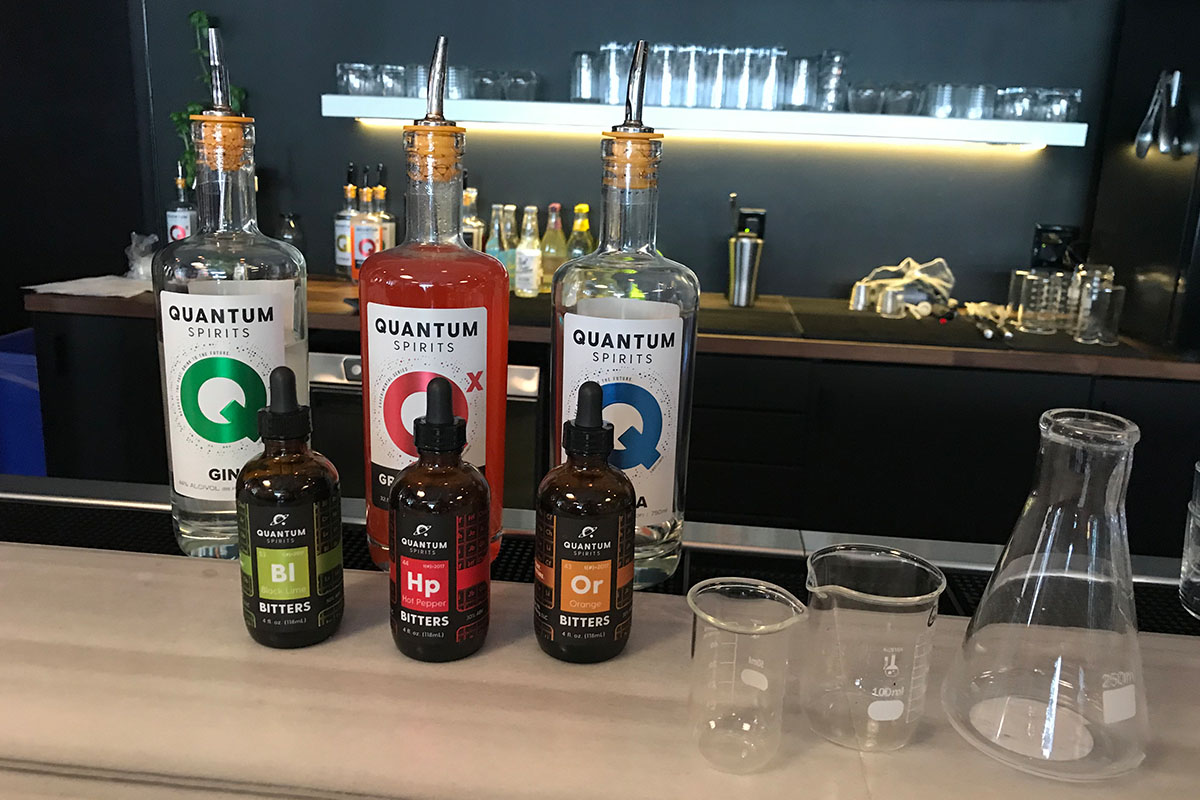
Quantum Spirits: “Reinventing craft spirits through science” is the motto of this Pittsburgh distillery, co-founded by a chemical engineer. A barrel-rested rye/rye malt gin and black lime bitters are your go-to purchases here.
Liberty Pole Spirits: Based in Washington, PA, this is the distillery where you’ll get your ideal (if admittedly biased) Whiskey Rebellion history lesson — the weekend we were here, the surrounding town was hosting a four-day ceremony based around the uprising, with costumes, reenactments and, of course, plenty of whiskey. While you’re getting a history lesson, pick up a bottle of Peated Bourbon, crafted from Bloody Butcher red corn, distiller’s mash and heavily-peated barley.
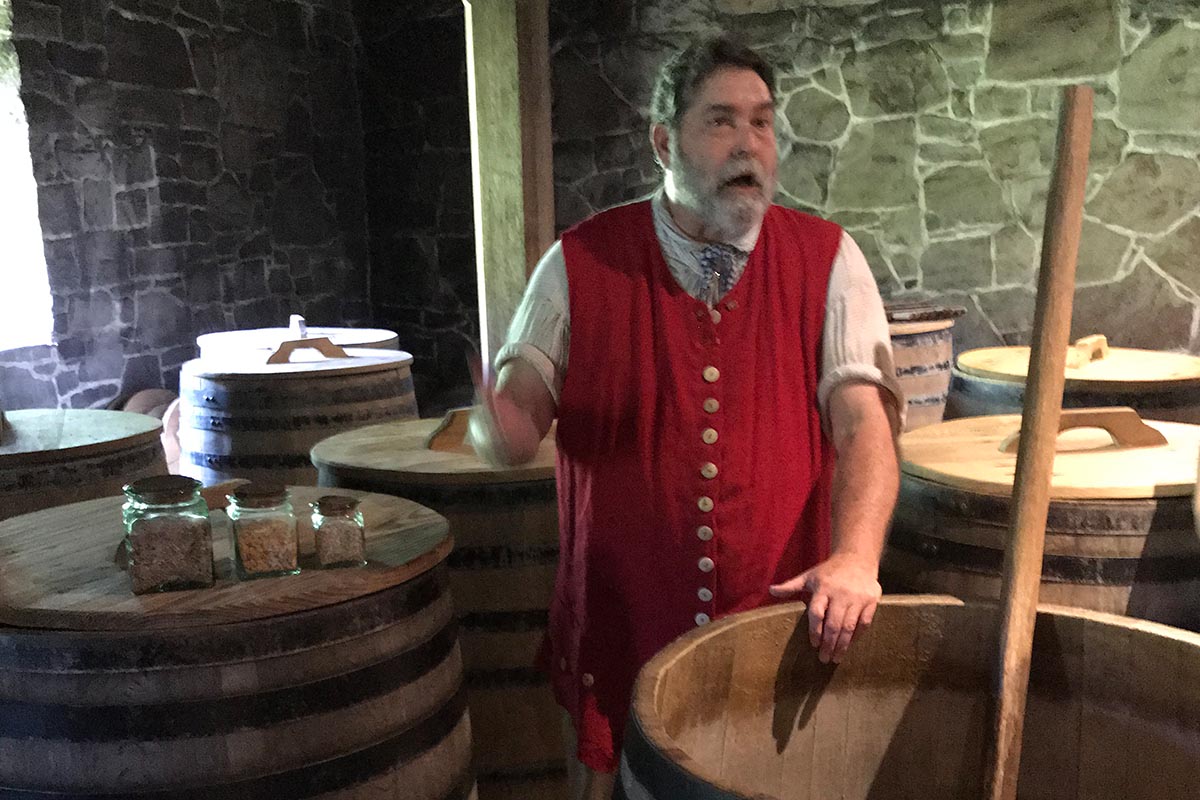
George Washington’s Distillery: The president who marched (albeit only part of the way — you’ll hear about on the tour) to quash a whiskey tax rebellion actually oversaw a rather popular and highly profitable distillery at Mount Vernon. Today, they’ve recreated the distillery at this historic location and produce a small run of hooch using the same 18th century process, equipment and recipe that Washington and his team used. The whiskey? Damn good. The idea that Washington’s distillery was run, in part, by slave labor? A point they’ll bring up on tour but good to remember.
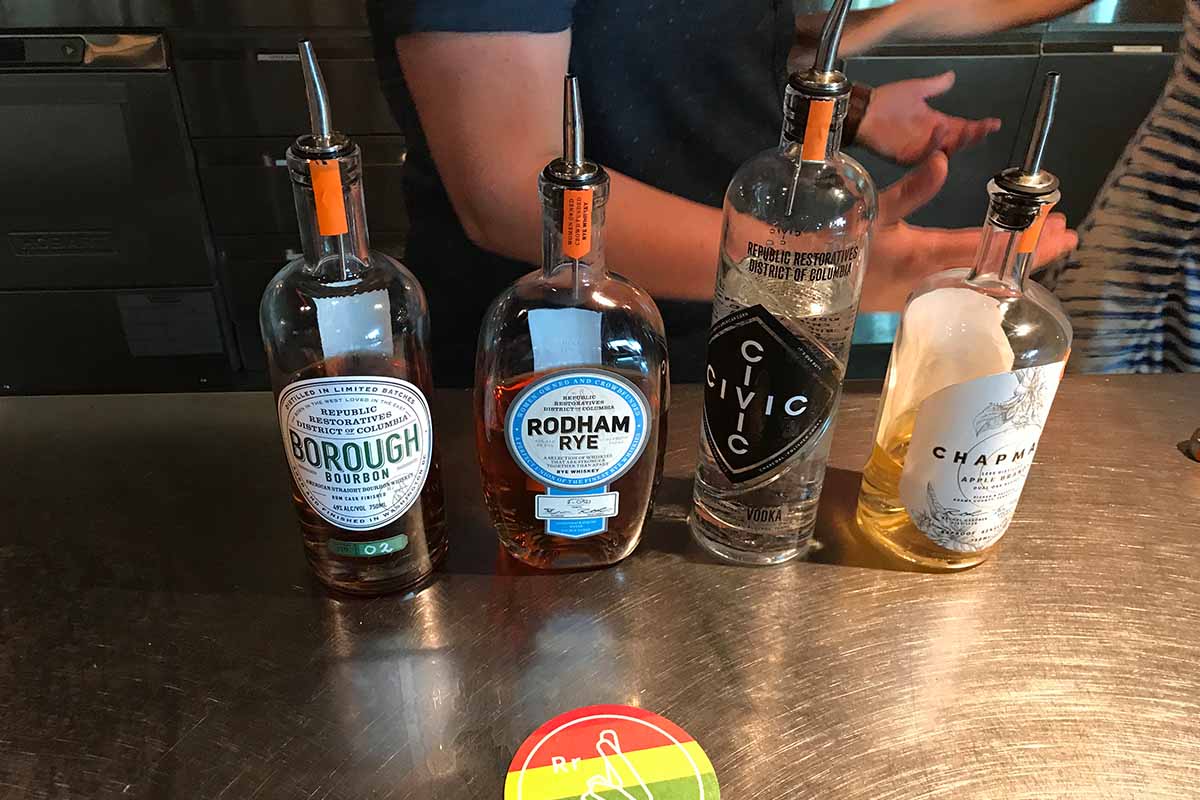
Republic Restoratives: Started by the former Chief of Staff for Rep. Gabby Giffords, this woman-owned, LGBTQ-friendly distillery started with a successful crowdfunding campaign on Indiegogo and produces a damn crisp vodka (if I had more access, it’d be my martini base of choice) and a wheated whiskey finished in Barbados rum casks. It’s stellar, and it’s also pretty much sold out … another reason to go on these tours and support local craft distilleries.
Baltimore Spirits Co.: While we weren’t able to visit their tasting room, we did do some tastings and were impressed by the company’s vision (and their commitment to 100% geothermal cooling); we sampled a mezcal-style apple brandy and Asimina Pumula, an apple brandy fermented with local flavors (paw paw, persimmon, black walnut) … during which a Maryland Country Ham is suspended within the still, which imparts the spirit with a savory, prosciutto note.
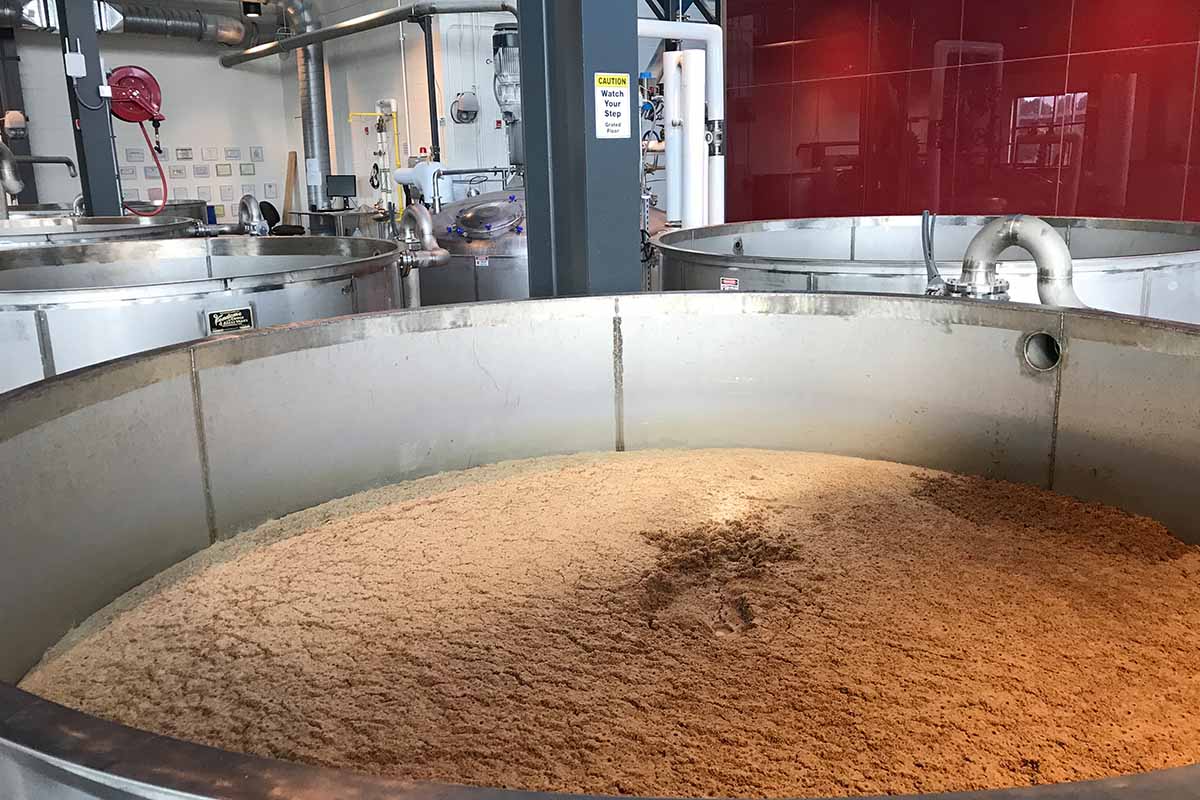
Sagamore Spirit: Maryland-style rye is a bit smoother on the palate, and you won’t find a better experience with it than at this state-of-the-art distillery, featuring a 40-foot mirrored-finished copper column still and all located on the Baltimore waterfront. Go for the tour, hit the amazing Rye Street Tavern next door, then book a 30-minute water taxi ride to the Sagamore Pendry Hotel across the water.
Red Brick Craft Distillery: In Philadelphia, we sampled nearly a dozen fantastic spirits producers both within and just outside the city limits (shout out to The Revivalist, 1675 Spirits, Philadelphia Distilling, Bluebird, etc.). But we’re gonna give a special nod to Red Brick, which is located in a nondescript basement in Fishtown, only open to the public for a few hours on Saturdays and crafts some truly nice American Single Malt Whiskeys. It felt like the closest thing we’d experience on the Trail akin to homebrewing or bootlegging (although it was all legal) — it was a nice shoutout to American ingenuity and our DIY spirit.
How to experience the Whiskey Rebellion Trail
Fortunately, you don’t need four dedicated days: You can buy passes tailored to your preferred experience, be it one, three or 90 days if you’re doing individual cities. As well, you can grab 90- or annual passports if you’re connecting multiple locations along the Trail.
Depending on your passport, you’ll be able to enjoy free admission, tours and spirits flights at different local distilleries, discounts on full bottles at those locations and have free access to select cultural institutions in the area. Overall, around 75 spirits makers, museums and historic sites are participating.
You can book your Trail experience here.
Every Thursday, our resident experts see to it that you’re up to date on the latest from the world of drinks. Trend reports, bottle reviews, cocktail recipes and more. Sign up for THE SPILL now.
